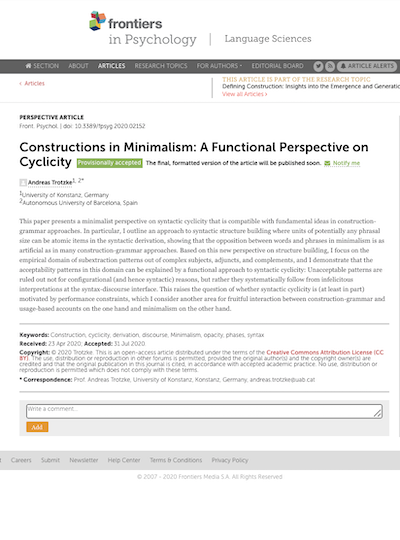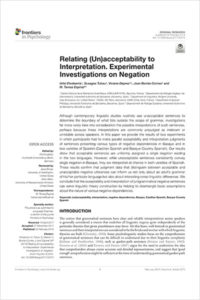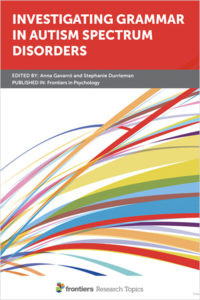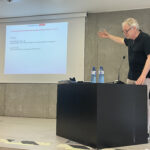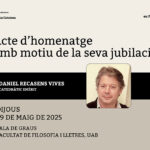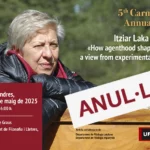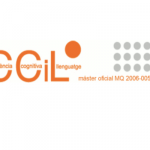2 desembre, 2019
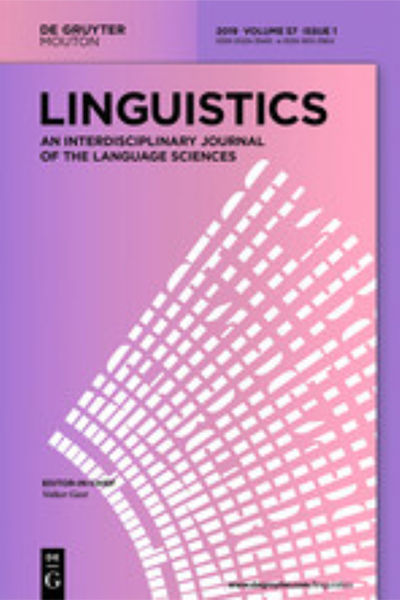
Autors:
Andreas Trotzke & Eva Wittenberg
Títol:
Long-standing issues in adjective order and corpus evidence for a multifactorial approachEditorial: Linguistics 57(2), 273-282
Data de publicació: 2 desembre 2019
Més informació
Text completIn this paper, we introduce the issue of adjective order and show that different approaches vary in their answers to the question of how fine-grained the semantic categories determining adjective order are. We report on a corpus study that we conducted and that illustrates that a clear answer to the question of what general factors exactly determine adjective order is elusive, given the multifactorial nature of the problem. We then present the individual contributions to this special issue, and how they attempt to add new observations from Germanic languages to the general issues revolving around the topic of adjective order.
1 març, 2020
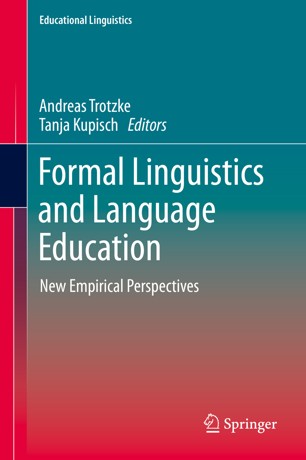
Autors:
Andreas Trotzke & Tanja Kupisch (eds.)
Títol:
Formal Linguistics and Language Education, New Empirical PerspectivesEditorial: Educational Linguistics vol.43, Springer
Data de publicació: Juny de 2020
Més informacióThis volume focuses on work that has its origin and motivation in formal linguistics and theory-driven research on the acquisition of grammar, and on this basis tries to establish links to language pedagogy, including students’ and teachers’ beliefs about what ‘grammar’ actually is. The contributions to this volume cover a wide range of empirical linguistic domains and concern aspects of morphosyntax, including word order, inflectional morphology, article systems, pronouns, compounding patterns, as well as orthography and students’ general beliefs about grammar.
1 setembre, 2020
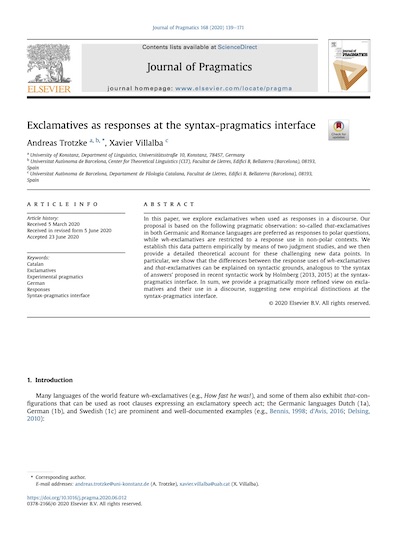
Autors:
Andreas Trotzke & Xavier Villalba
Títol:
Exclamatives as responses at the syntax-pragmatics interfaceEditorial: Journal of Pragmatics, 168 (pp. 139–171)
Data de publicació: Octubre del 2020
Més informació
Text completIn this paper, we explore exclamatives when used as responses in a discourse. Our proposal is based on the following pragmatic observation: so-called that-exclamatives in both Germanic and Romance languages are preferred as responses to polar questions, while wh-exclamatives are restricted to a response use in non-polar contexts. We establish this data pattern empirically by means of two judgment studies, and we then provide a detailed theoretical account for these challenging new data points. In particular, we show that the differences between the response uses of wh-exclamatives and that-exclamatives can be explained on syntactic grounds, analogous to ‘the syntax of answers’ proposed in recent syntactic work by Holmberg (2013, 2015) at the syntax-pragmatics interface. In sum, we provide a pragmatically more refined view on exclamatives and their use in a discourse, suggesting new empirical distinctions at the syntax-pragmatics interface.
8 setembre, 2021
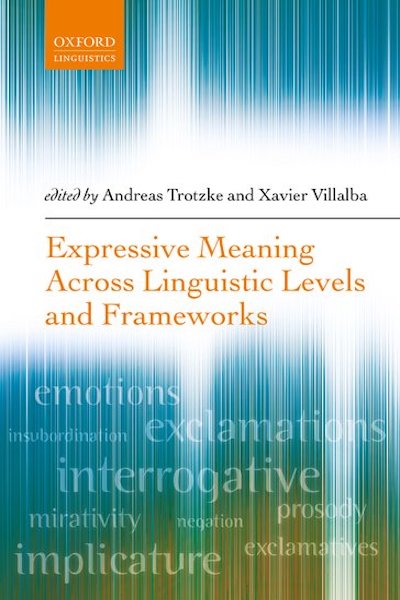
Autors:
Andreas Trotzke & Xavier Villalba
Títol:
Expressive Meaning Across Linguistic Levels and FrameworksEditorial: Oxford University Press
Data de publicació: Agost del 2021
Pàgines: 336ISBN13: 9780198871217
Més informacióThis volume is the first to explore the formal linguistic expressions of emotions at different levels of linguistic complexity. Research on the language-emotion interface has to date concentrated primarily on the conceptual dimension of emotions as expressed via language, with semantic and pragmatic studies dominating the field. The chapters in this book, in contrast, bring together work from different linguistic frameworks: generative syntax, functional and usage-based linguistics, formal semantics and pragmatics, and experimental phonology. The volume contributes to the growing field of research that explores the interaction between linguistic expressions and the 'expressive dimension' of language, and will be of interest to linguists from a range of theoretical backgrounds who are interested in the language-emotion interface.



